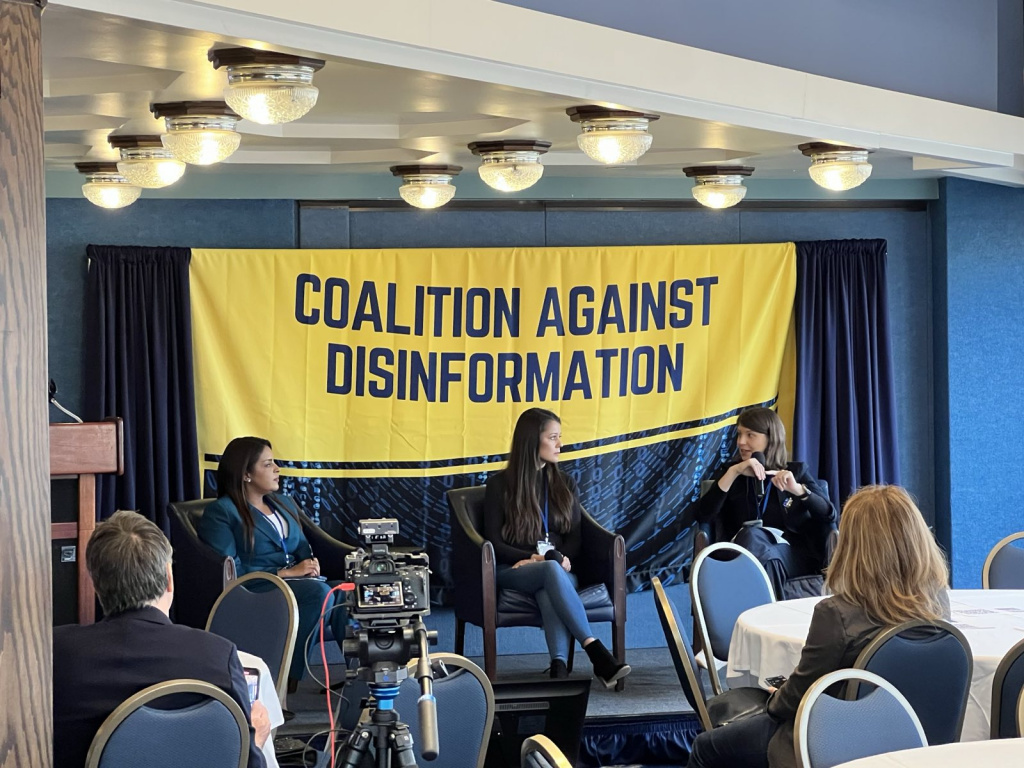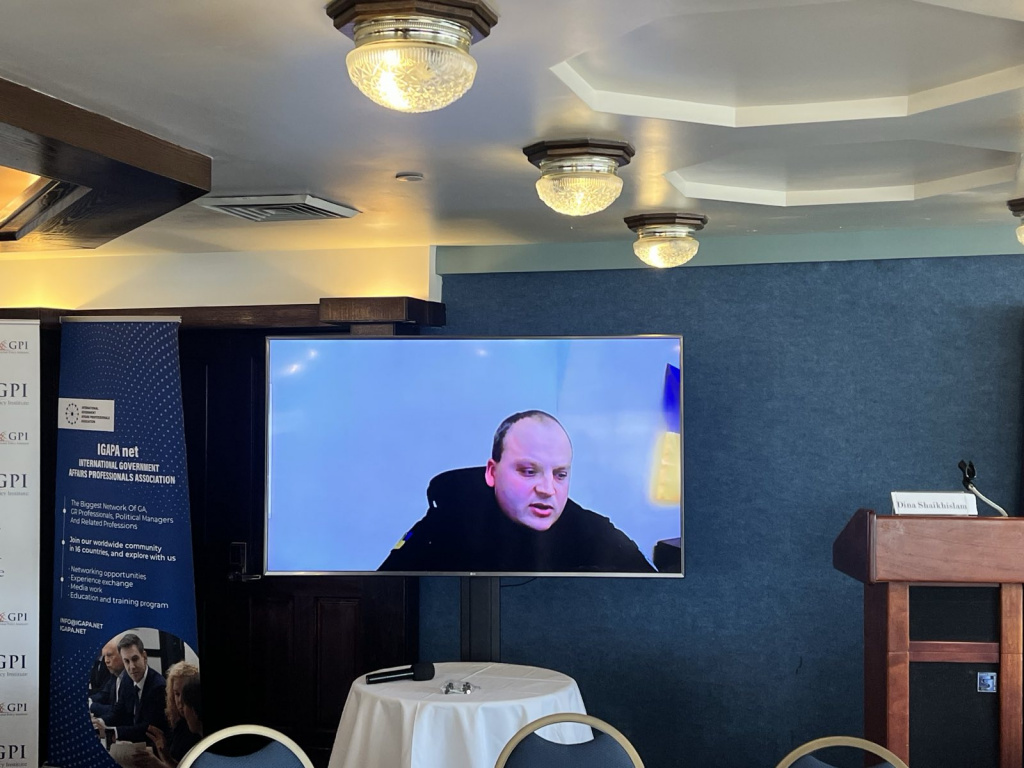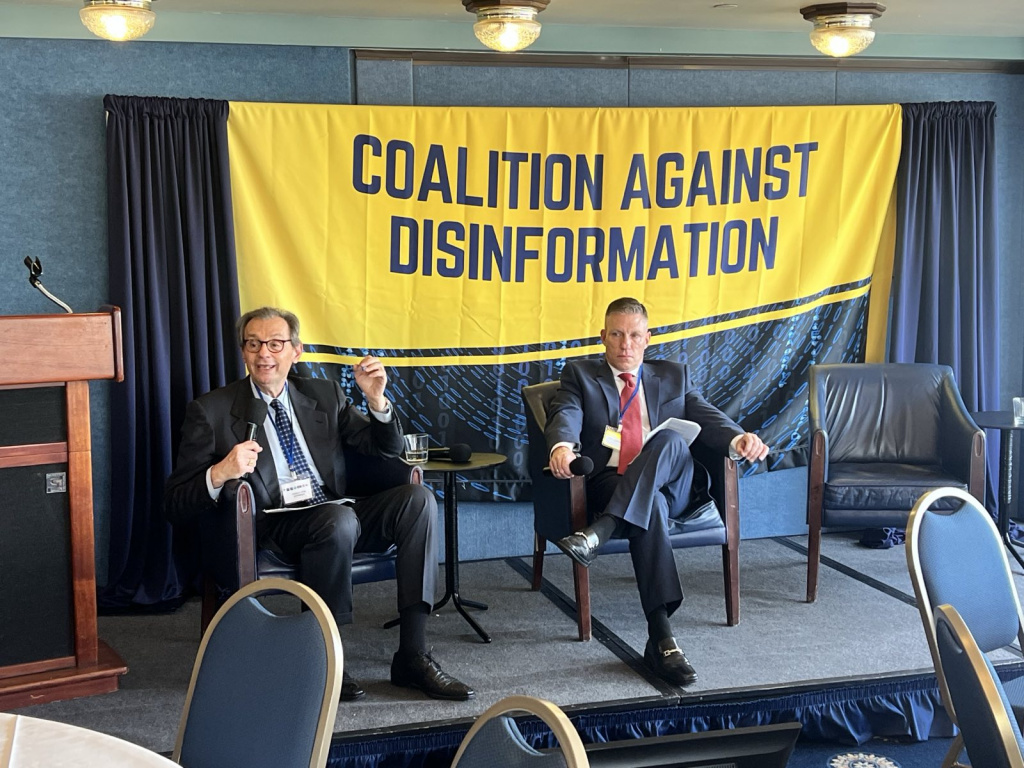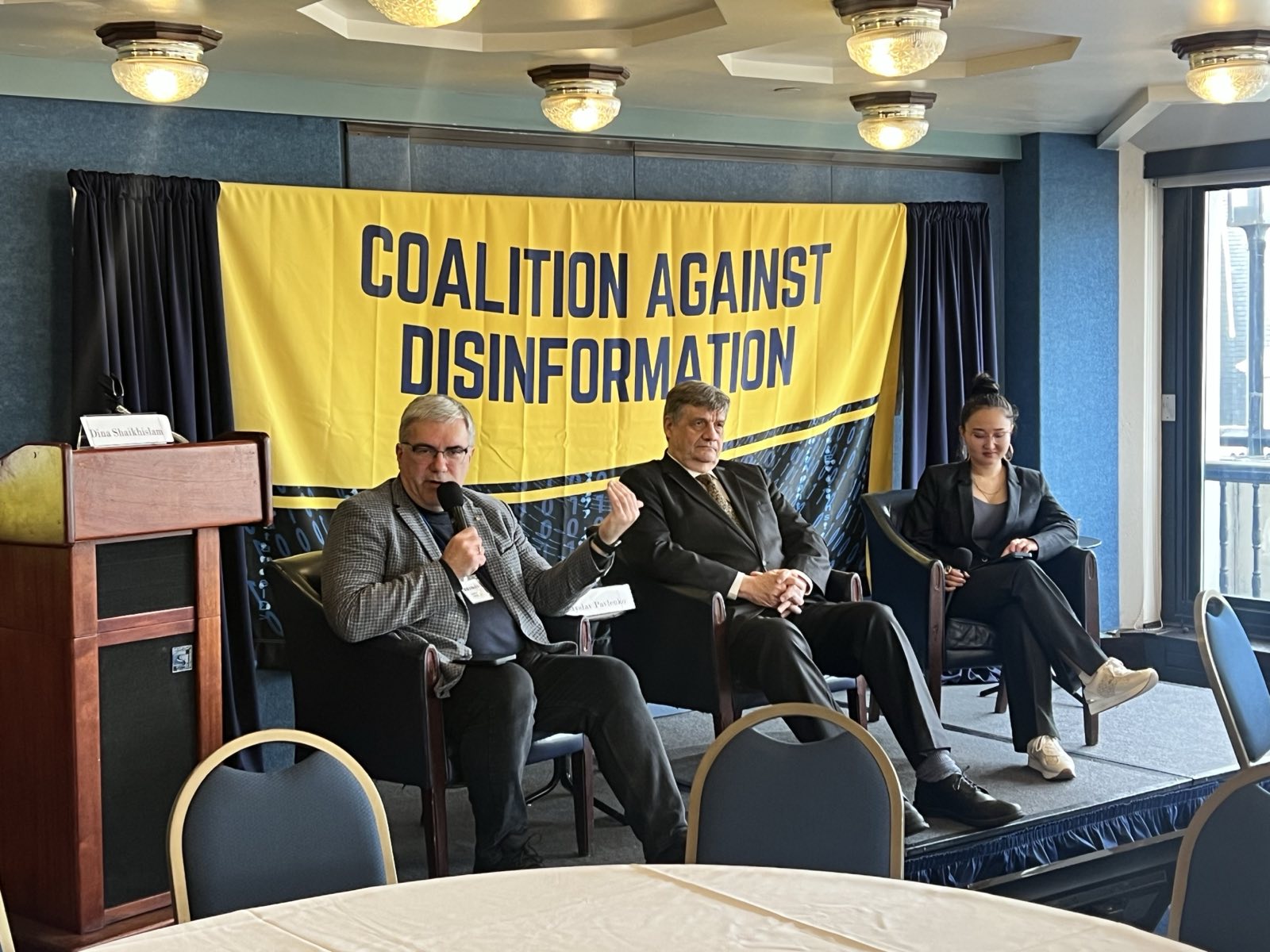On October 29th, the conference, Russian Disinformation: Tactics, Influence, and Threats to National Security, brought together experts from media, politics, security, human rights, and various religious communities to address the evolving challenge of Russian disinformation. Held at the National Press Club in Washington, D.C., the event provided a platform for assessing the mechanisms and impact of Russian influence operations on national and international stability and for developing strategies to address these challenges. It was organized by the Coalition Against Disinformation, an alliance of non-governmental organizations (NGOs) focused on addressing the issue of disinformation across multiple platforms. This coalition unites experts, activists, and organizations with a shared goal: to support information integrity and democratic values amid concerns about manipulation.
One of the members of the coalition is the Institute for Democracy and Development “PolitA” is a nonprofit 501(c)(3) organization. It conducts educational and analytical projects in the fields of democracy development and support for reforms. The organization was created by experts in political science, strategic planning, and analytics, and aims to engage active citizens to promote democratic development and build civil society worldwide. Since the establishment, the institute has formulated solutions for domestic politics and democracy development, mentored over 5,000 program participants, written over 30 strategy papers, conducted over 200 events with decision-makers, and written over 50 press releases. For 5+ years, the institute has been actively cooperating with American partners on mutual experience exchange programs (2 exchange programs were implemented), analytical work, and events (including the International GR Forums and the Political Campaign and Management Forums) with American experts in Brussels, Istanbul, and Washington.

During the conference, experts examined Russian disinformation campaigns, including their influence on governance, electoral processes, and religious freedoms in both occupied and democratic territories. Participants discussed the role of disinformation in shaping perceptions of Russia’s military activities and the wider implications for societal cohesion.

The opening panel, The Strategic Use of Disinformation in Propaganda, covered Russia’s amplification of narratives through various channels, including social media. Experts highlighted challenges in detecting disinformation in real time and the importance of fact-checking and media accountability in addressing the flow of disinformation.

Another session, Russian Disinformation and the Erosion of Religious Freedoms in Occupied Territories and Democratic Nations, discussed the manipulation of religious freedoms and its effects on societal cohesion, with a particular focus on regions such as Crimea and Donbas. The conference also unveiled a report that analyzes the tactics and methods used in disinformation campaigns impacting religious rights and electoral processes. The report is available here:

